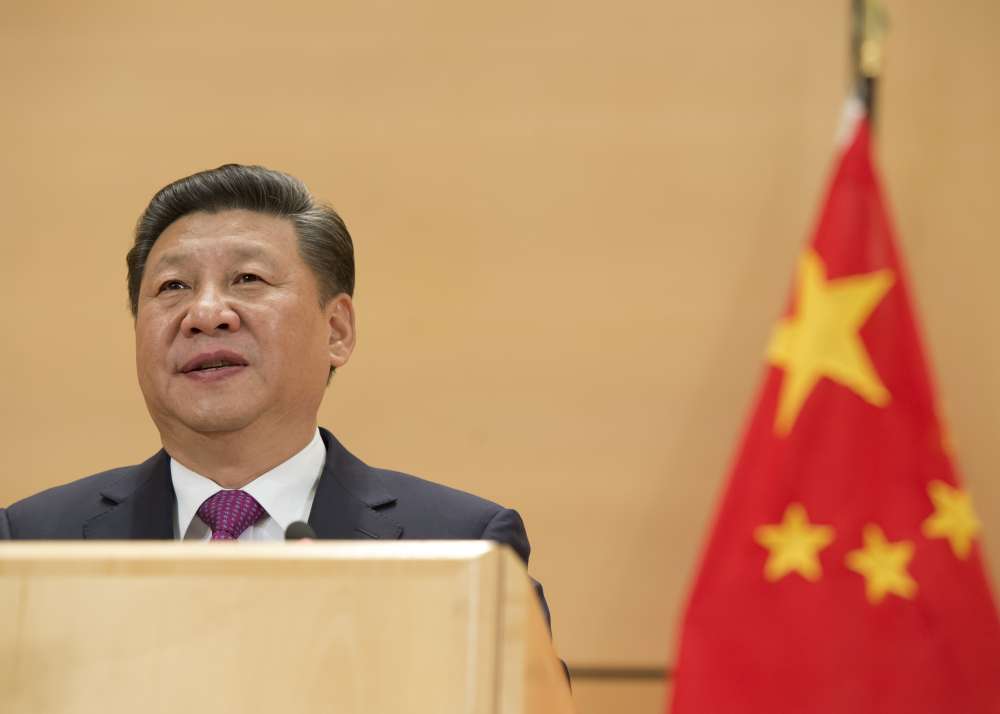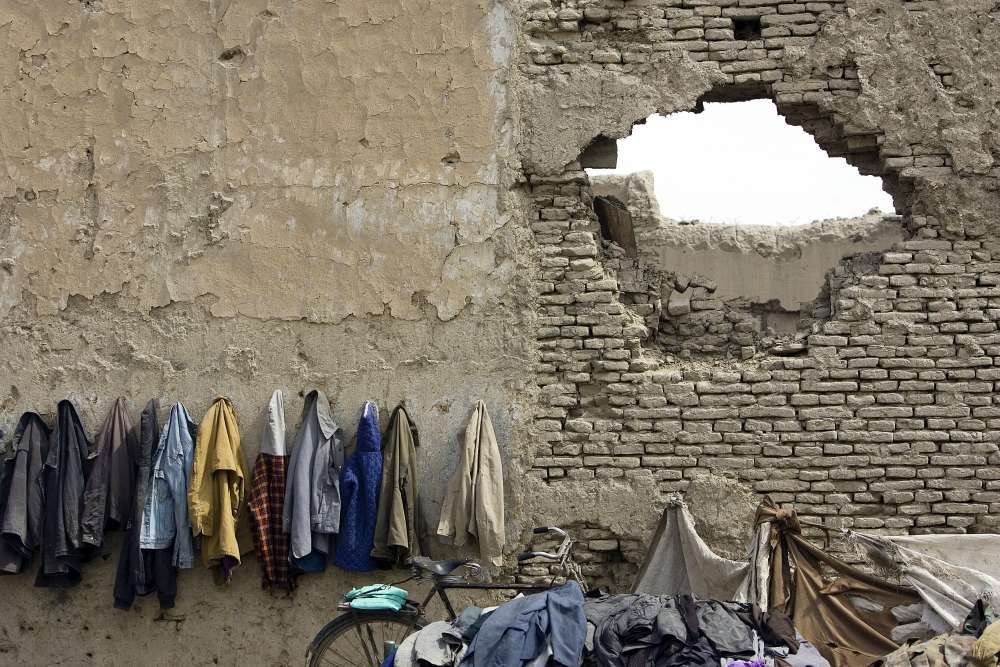China’s Relations With U.S. Allies and Partners in Europe

Summary of Key Points
- China is interested in a stable — but pliant and fragmented —EU and the large and integrated European single market that underpins it. Properly managed, the CCP leadership has concluded, parts of Europe can be a useful conduit to further its interests.
- China wants to dilute the transatlantic alliance as an actor in upholding the liberal international order but it has evolved in its view of NATO and has slowly increased its engagement, particularly on Afghanistan and terrorism.
- China commands a comprehensive and flexible toolset in Europe to build and exercise influence. It ranges from the overt to the covert and is strategically deployed across various arenas: political and economic elites, media and civil society & academia.
- China has been most successful in its efforts in Central, Eastern, and Southern Europe. There are more antibodies at work in Western Europe.
- Of the major countries in Western Europe, the United Kingdom is the most likely to pursue a strategy of engaging China even if it comes at a political cost. This is because of the pressure that Brexit puts on London to find new economic partners.
- The United States can assist Europe in preparing for and dealing with challenges from China. This includes strengthening democratic institutions, freedom of the press, and the rule of law; raising U.S. interests on China in relations with Central, Eastern, and Southern European countries in particular; building capacity in China expertise in Europe; and encouraging the EU to adopt far-reaching common rules for how foreign investment affects national security interests.
China’s Objectives Toward the EU
The Chinese leadership’s seeking of political influence in the EU is driven by two interlocking motivations: ensuring regime stability at home and presenting its political concepts as a competitive way of political and economic governance to a growing number of third countries.*
Overall, unlike the current Russian government, Beijing is interested in a stable — but pliant and fragmented —EU and the large and integrated European single market that underpins it. Properly managed, the CCP leadership has concluded, parts of Europe can be a useful conduit to further its interests. Politically, it is seen as a potential counterweight to the U.S. – one that is even more easily mobilized in the era of the Trump administration’s “America First” approach. Beijing is also acutely aware that Europe has many assets like technology and intellectual property, which China needs for its industrial upgrading, at least in those domains in which it has not yet established its own technological leadership. The EU is also useful as a ‘legitimizer’ of Chinese global political and economic activities, such as the Belt and Road Initiative (BRI).
Beijing pursues three related goals. The first is aimed at building support among third countries like EU member states on specific issues and policy agendas, such as gaining market economy status from the EU or recognition of territorial claims in the South China Sea. A part of this short-term goal is to build solid networks among European politicians, businesses, media, think tanks, and universities, thereby creating layers of active support for Chinese interests. Recent Chinese attempts to discourage individual EU countries from taking measures that run against Chinese interests, such as supporting a coordinated EU response to China’s territorial claims in the South China Sea, meeting with the Dalai Lama, or criticizing Beijing’s human rights record, are cases in point.
The second related goal is to weaken Western unity, both within Europe and across the Atlantic. Beijing realized early on that dividing the U.S. and the EU would be crucial to isolating the U.S., countering Western influence more broadly, and expanding its own global reach. China senses that a window of opportunity to pursue its goals has opened, with the Trump administration seen as withdrawing from the role as guardian of the liberal international order that the U.S. has long played. This comes in addition to the challenges Western liberal democracies face from the rise of illiberal-authoritarian political movements.
The third goal is broader in terms sense of “making the world safe more China’s autocratic model.” This means creating a more positive global perception of China and presenting its political as well as economic system as a viable alternative to liberal democracies. In large part, this is motivated by the CCP’s continued fear of the appeal of so-called Western ideas like liberal and democratic values. From the vantage point of Beijing, European and Western ‘soft power’ has always had a sharp, aggressive edge, threatening the Chinese regime. At the same time, this goal is based on the idea that as China rises in economic and military terms, it should command more respect in the court of global public opinion. Activities geared towards long-term shifts in global perceptions include improving China’s global image through measures like media cooperation, making liberal democracy less popular globally by pointing out real or alleged inefficiencies in democratic decision-making processes, and supporting illiberal tendencies in European countries.
China’s View of the Transatlantic Relationship and NATO
China seeks to weaken the transatlantic bond between the United States and Europe but has evolved in its view of NATO as it comes to grips with the threat from Islamist terrorism.
China has three objections to a strong transatlantic relationship:
- China worries that the United States and Europe have an outsized role in setting the rules of the road for the international order. Since the 1940s, the liberal order has been largely a transatlantic order. There are parts of the order China likes but it is uneasy with liberal norms on democracy, human rights, multilateralism, and even on economics. It stands a better chance of shaping the direction of the order if there are multiple power centers than if Europe and the United States act as one.
- It does not want the United States to influence European policy toward China. China has an inherently competitive relationship with the United States, owing to the U.S. role in the Indo-Pacific. Europe, by contrast, is not a resident power in Asia. China worries that Europe’s view of China will be overly influenced by the United States, as it was in the 2000s on the arms embargo. Today, this manifests itself in technological transfer, the EU’s position on maritime territorial disputes, human rights, and Chinese investment in critical infrastructure.
- China seeks to replace an order organized in large part around U.S. alliances with an order consisting of spheres of influence for regional powers, including China. China has never believed that alliances are a part of the order; instead, they see them as undermining it. Moreover, China rejects the notion that the transatlantic alliance, or any alliance, can legitimize the use of force for military interventions, as NATO has sought to do in the past.
That said, China’s view of NATO has evolved. China has had a very frosty relationship with NATO since the 1999 Kosovo War in which NATO forces mistakenly destroyed the Chinese embassy in Belgrade. China has also maintained it is opposed to alliances on principle so it saw little reason to engage NATO in the same way that other non-member states do — by having an envoy at NATO headquarters or by participating in a strategic dialogue. However, the ongoing threat of Islamist radicalism and NATO’s role in Afghanistan changed Beijing’s calculation. China has its own terrorism problem. China had its first meeting with NATO officials in 2002, a NATO official visited China for the first time in 2009, and China appointed a high level representative to NATO in 2012. China and NATO have closely consulted with each other on Afghanistan and there have been joint anti-piracy operations in the Gulf of Aden. China would be very wary of NATO taking on a role alongside U.S. forces in the Asia Pacific but such a scenario is very remote. However, China has engaged in some activities that raised eyebrows in NATO. In 2017, it conducted joint naval exercises with Russia in the Baltics. Beijing has also cautiously engaged with Ankara with a view to Turkey developing formal ties, or even joining, the Shanghai Cooperation Organization (SCO) which some Turkish officials think may be an alternative for ties to the west.
China’s Tactics in Europe
China commands a comprehensive and flexible toolset in Europe to build and exercise influence. It ranges from the overt to the covert and is strategically deployed across various arenas: political and economic elites, media and civil society & academia.
In part, China uses covert methods (such as targeting German lawmakers and government employees via fake social media profiles). But most influencing comes through the front door. Beijing takes advantage of the EU’s one-sided openness. Europe’s doors are wide open whereas China seeks to tightly restrict access of foreign ideas, actors and capital. Beijing has understood that you can easily buy influence in Europe. Beijing profits from willing enablers among European political and professional classes who are happy to promote Chinese values and interests. They do so mostly for financial or other advantages but at times also out of genuine political conviction or convenience.
Beijing takes its easiest pickings within smaller EU member states in Central and Eastern Europe as well as Europe’s South. Here comparatively small investments translate into big political gains since all these countries have a say (and sometimes a veto) at the Brussels table on joint EU decisions. Crucially, China has organized countries in Central and Eastern Europe in the so-called 16+1 format that holds annual summits as well as organizing think tank and other complementary activities linking China with countries in the region. The 16+1 serves to weaken EU solidarity and exacerbates the divide between East and West.
Beijing also uses investments in infrastructure and public utilities to create political leverage. In Greece for example it controls the key port of Piraeus, contributing to the Greek government torpedoing a joint EU resolution on the human rights situation in China in the Human Rights Council. It is worth noting, however, that this is not always the case. In Portugal, for example, China’s Three Gorges is a major shareholder in Energias de Portugal, the utility major and the State Grid Corporation of China owns 25% of Redes Energéticas Nacionais, the grid operator. But this has not translated into Portugal going out of its way to support Chinese positions within the EU context. In the Czech Republic, it placed an advisor in the president’s office. Across Europe, it buys the services of former politicians such as former German vice chancellor Philipp Roesler (who was hired by Chinese conglomerate HNA) and former UK prime minister David Cameron (who signed up to lead a joint UK-China investment fund).
Many smaller Eastern and Southern EU members align with China in fits of “preemptive obedience.” They try to curry favor with China and lure investment by supporting China’s political positions. Some illiberal governments (such as Hungary’s) do so all too happily. They see China’s authoritarian model as attractive and a convenient source of leverage against Brussels and Western EU members pushing back against their illiberalism. Hungarian prime minister Viktor Orbán has already played the China card to put pressure his EU partners who are considering reducing structural funds in response to his authoritarianism and a post-Brexit recalibration of the EU budget: “Central Europe needs capital to build new roads & pipelines. If the EU is unable to provide enough capital, we will just collect it in China,” he argued in Berlin earlier this year. To sweeten the deal for China, Orbán is gladly working to prevent a strong EU stance on China’s territorial advances in the South China Sea.
In parallel, Beijing has invested in shaping the narrative on China. All across Central and Eastern Europe, China-supported Confucius Institutes, as well as China-linked think tanks and university scholars dominate discussions, while an increasing number of journalists go through training programs designed and funded by the CCP. In Brussels and other capitals, China funds think tanks and pays lobbyists to project a favorable image. It spreads Chinese official views and creates subtle dependencies by paying for inserts in European quality newspapers (from Handelsblatt to El País). It uses the lure of the Chinese market to encourage (self-) censorship in film, art, and academic publishing (with Springer Nature being the latest European publisher to bow to Chinese demands). China even went as far as demanding Germany suppress freedom of speech in order to ensure that its soccer teams are not met by protests around the Tibetan issue during paid friendly games on German soil.
Europe’s Response
China has already made significant progress toward a more fragmented and pliant Europe that better serves Chinese authoritarian interests. EU countries have been slow to wake up to the dangers of growing Chinese political influence in Europe. But there are increasing signs that Western Europe is changing course, particularly the big three — Germany, France, and the United Kingdom.
In Germany, the EU’s biggest economy, the trigger for a change of attitude vis-à-vis Beijing has been the realization that China is gearing up to be a major competitor for Germany’s key industries based on its “Made in China 2025” strategy. This has sharpened a much more critical look at the implications of Chinese investments in Germany and elsewhere in Europe. While the initial concern was with technology transfer, the German debate has quickly broadened to include China’s broader geopolitical and geoeconomic aspirations (including through the Belt and Road Initiative)– and the growing political influence in the EU. Last year, then foreign minister Sigmar Gabriel called China the only major power with a clear geopolitical strategy – and decried the lack thereof in Germany and Europe. Gabriel criticized China’s 16+1 forum as an effort to divide Europe and demanded that China stick to a “One Europe” approach. Chancellor Merkel has echoed similar concerns about the 16+1 forum. German officials have been less forthcoming with an acknowledgment that their own privileged bilateral relations with Beijing (Germany holds annual government-to-government consultations with China involving the whole cabinet) have only incentivized smaller European countries to also seek their own ties with Beijing, paving the way for the 16+1 forum. Interestingly, China reportedly has signaled that it wants to tone down the scope and intensity of the 16+1 format, seemingly responding to these concerns.
The French government under President Macron has also criticized Chinese initiatives. Macron visited China earlier this year and endorsed BRI but he also warned that BRI “cannot be one-way.” His finance minister railed against Chinese “looting” of European technology. Macron wants to position France as a leading voice on China and looks to engage it but through a more unified EU and with conditions attached. France also has greater security interests in the Asia Pacific than most European countries. For instance, it won a $50 billion contract to build the next fleet of Australian submarines and it is deepening its security cooperation with India.
The British case has been more mixed. During the Cameron government, the United Kingdom vigorously sought out Chinese investment and made significant geopolitical concessions, including downplaying human rights and allowing China to invest in critical infrastructure, such as nuclear power plants. The Prime Minister and George Osborne, the Chancellor of the Exchequer, declared this the beginning of a new “Golden Era” and ignored loud and bipartisan objections from the United States. Initially, Theresa May proved to be more skeptical of China. She delayed Chinese investment in nuclear power plants and put in place safeguards for national security. However, in February of this year, she did visit China and promised to “intensify the golden era.” Brexit increases the incentives for the UK to seek access to Chinese markets and investment. Currently, China accounts for 3.1% of British exports, compared to 43% for the EU. If the UK fails to agree a trade deal with the EU 27 that comes close to its current arrangement, it will be tempted to compensate by reaching out to other large countries with potential for growth. China is high on the list. This incentive may be partially offset by the UK’s desire for a close strategic relationship with the United States post-Brexit.
Senior EU officials also recognize the need for a change in course. For instance, in a speech in September 2017, European Commission President Jean-Claude Juncker said “If a foreign state-owned company wants to purchase a European harbor, part of our energy infrastructure or a defense technology firm, this should only happen with transparency.” However, there was limited support for his call, with some governments (ie. Poland) criticizing him directly. There has been less progress in Central, Eastern, and Southern Europe where the trends described earlier continue and have even intensified. But there are civil society initiatives such as ChinfluenCE that are tracking Chinese influencing efforts in Central and Eastern Europe and that are starting to inform the public.
Implications and Recommendations for the United States
A strong transatlantic alliance is a vital U.S. interest — Europe is a vital economic partner for the United States, the two sides broadly share the same values, and the alliance contributes to peace in Europe. If China were to dilute that relationship or weaken Europe’s role in upholding the international order, it would badly damage U.S. interests, damaging the economy, increasing the risk of conflict, and setting back classically liberal values. European nations are pushing back against excessive Chinese involvement in their politics and we expect these efforts to accelerate in the coming years.
Even though they see China’s role very critically, governments of major EU countries such as Germany feel compelled to hedge against actions by the Trump administration hurting EU interests e.g. on trade by signaling open channels of communication with Beijing. Any open hostility against the EU by senior members of the U.S. administration (such as the incoming national security advisor) will only deepen the need of EU governments to hedge against what they perceive as destructive actions by the U.S. government.
The United States and the U.S. Congress can help Europe’s in several ways.
- The United States should be forward looking and prepare the transatlantic alliance for dealing with the growing influence of China. Within NATO, the U.S. should help promote a debate on what China’s growing footprint in the field of security means for European interests and how Europe and NATO can prepare.
- The United States should also make the health and strength of democratic institutions (including independent media) and the rule of law in Europe a key part of its foreign policy. This is the best safeguard against foreign influence from authoritarian governments. It should also encourage European nations to ban foreign funding of political parties and campaigns, as Australia recently did to counter Chinese interference in its domestic politics.
- The United States should encourage the EU to adopt far-reaching common rules for how foreign investment affects national security interests. The U.S. can also support efforts to enable EU members and third countries in the neighborhood to properly evaluate, monitor, and prepare large-scale infrastructure projects, including those financed by China.
- The United States and the EU should affirmatively work together on a transatlantic artificial intelligence and technology strategy that ensures defensive measures against China do not create a game of musical chairs for companies that will cut compromised deals, as well as affirmative measures to invest in transatlantic Research and Development, and education initiatives.
- The United States and the EU should lead efforts to develop standards and rules for emerging domains (such as space, cyber, and artificial intelligence) along with democratic U.S. allies in Asia.
- The United States can also help provide funding, from public and private sources, to build European capacity in high-caliber, independent China expertise in government, the media, think tanks, and universities. This expertise is currently lacking in most EU countries (especially those where China has gained the strongest foothold) and is a critical element in properly assessing and responding to the challenge.
…
Thomas Wright, director of the Center on the United States and Europe at Brookings, testified at a hearing of the “U.S.-China Economic and Security Review Commission on China’s Relations with U.S. Allies and Partners in Europe and the Asia Pacific,” The testimony was co-authored with Thorsten Benner, director of the Global Public Policy Institute. Watch the testimony.
* Parts of this text draw on Thorsten Benner, Jan Gaspers, Mareike Ohlberg, Lucrezia Poggetti, and Kristin Shi Kupfer (2018) Authoritarian Advance: Responding to China’s Growing Political Influence in Europe (Berlin, GPPi/MERICS).







